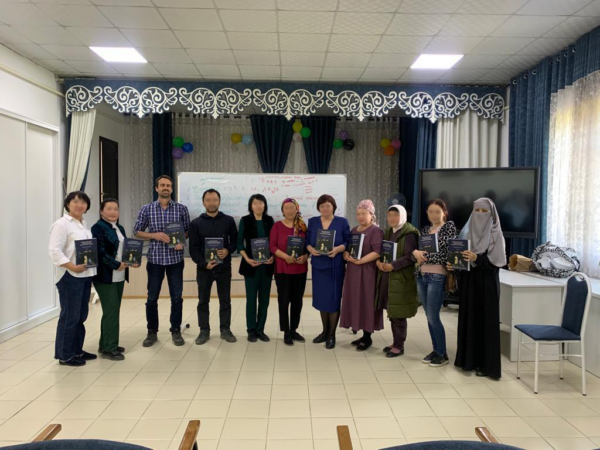Supporting Families with Disabilities in Central Asia
27 Dec 2023
The two-hour drive to ‘Black Axe’ from the capital got us there in time for the parents’ support meeting. The cold dreary morning and lack of electricity in the abandoned hospital grounds belied the warmth of the welcome we received, as former colleagues who helped establish the group have maintained strong connections. Black Axe has an estimated population numbering 50,000, and this parents’ support group consists of 90 families who have at least one child with a disability. (Around the country, and especially in rural areas, disability rates, and cerebral palsy in particular, are 5-10 times higher than in Australia.) After tea and small talk, we commenced a thorough discussion of the issues families with disabled children face. Accessibility to appropriate medical services, equipment availability, family support and social stigmas are keenly felt issues.
With enthusiasm, the group leaders flicked through pages of the resource ‘Disabled Village Children’, with versions we have translated into two languages. This highly accessible and applicable wealth of knowledge covers medical conditions, general child development principles, social integration and equipment manufacturing in primary school level language. The section on social integration sparked a lively conversation about the rejection of children from a playground because of fears of other children contracting disabilities. Parents now visit the playground in groups for solidarity.
Following this discussion, we visited a family with a severely disabled 11-year-old daughter. Her limbs are incredibly thin as a result of an inability to be fed solid food; she receives heavy anti-seizure medication which leaves her cognitively disengaged; and previous mismanagement of her condition has left her with a dislocated hip, further hampering efforts at physical therapy. For her, our first goal has been to help locate and adjust an adaptable chair. Until now, financial constraints have prevented suitable specialised seating from Europe for possibly thousands of dollars. Interestingly, this family isn’t part of the parents’ support group in Black Axe, which prompts questions about how many families there are in similar circumstances.
These examples illustrate the typical issues faced by families with disability here. Having a disabled child presents significant challenges regardless of location, but in this post soviet, traditional culture, beliefs and superstitions compound social rejection. Medically speaking, the lack of qualified physios and occupational therapists, further amplifies the challenge, with no known locals in the whole country having these qualifications.
The path towards widespread change is a long one, requiring a multi-pronged approach. Our small team of allied health professionals are engaging at grass-roots levels, and also at university level, where anything from occasional ‘masterclasses’ to widespread systems development of rehabilitation are explored. For significant change to happen, ongoing relationships that empower development of locals are required.
Please consider giving towards this project to help enable long-term change for the sake of families with disabilities, especially those in rural locations. If you have allied health skills, will you join us here?
CLICK HERE to donate.

JT | Pioneers Member
Is God calling you to join the mission field? Get in touch.
